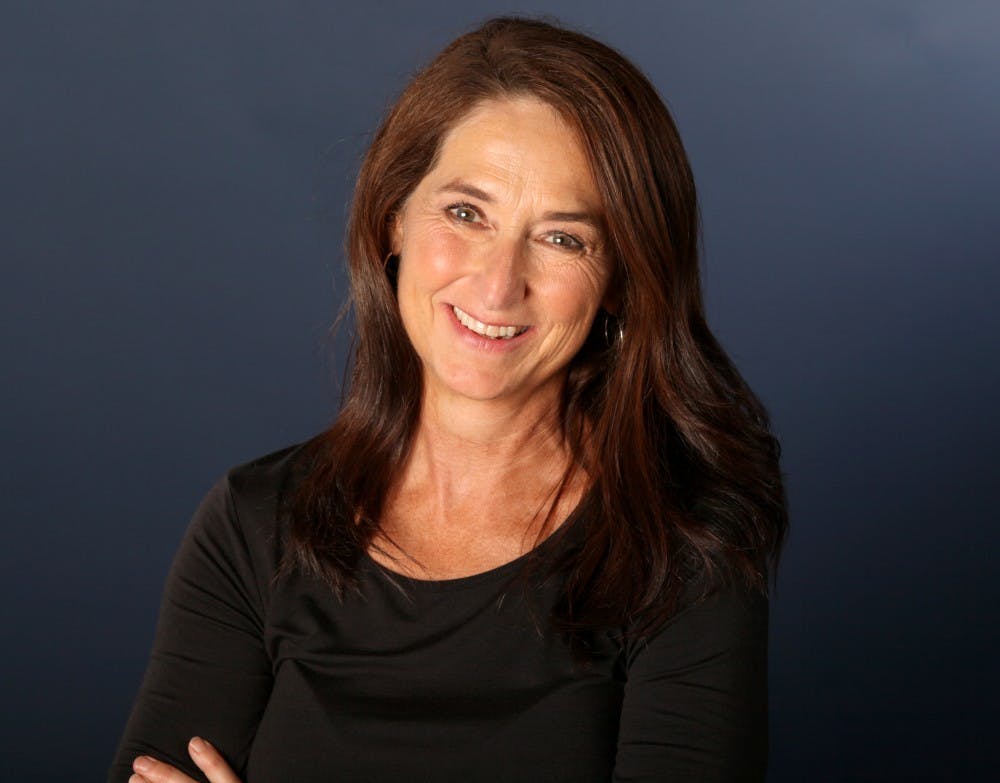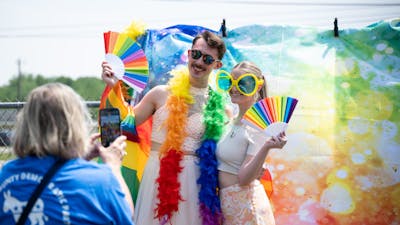Q&A: Author, reporter Joanna Connors to speak at CMU about her sexual assault

When Cleveland Plain Dealer reporter Joanna Connors was on assignment to review a play at a college theater, she was held at knifepoint and sexually assaulted.
After reporting the assault to the police and testifying in the trial of her assailant, she would go 21 years without speaking of it again – until she was on a college tour with her 17-year-old daughter. She told both of her children about her rape so they could learn and protect themselves.
She then went on to investigate her own sexual assault, writing about it for the Plain Dealer and then publishing a memoir, "I Will Find You: A Reporter Investigates the Life of the Man Who Raped Her."
Connors will visit Central Michigan University to speak about the discoveries from her investigation at 7 p.m. March 25 in Pearce 128. She will also talk about how survivors can learn to cope with and talk about their trauma.
Connors spoke with Central Michigan Life about why she investigated her sexual assault, and what impact her memoir has had on herself and other survivors.
Why did you decide to investigate your sexual assault yourself?
Connors: Because that’s what I do – I’m a reporter. I had the tools to do it. The original idea was just to find out who (the attacker) was. I had lived in fear of him for so long, and I thought it would help me overcome this fear. But it changed as I went along.
At the Cleveland Plain Dealer, I told my immediate editor that I was investigating my sexual assault and trying to write a memoir about it. He told the new editor of the paper, who was a woman, and she was immediately interested and asked me to write about this investigation for the paper. So it went from the goal of investigating my sexual assault and writing a memoir, then to be a story for the paper, and then it became a longer memoir that was eventually published.
During your investigation of your sexual assault, how did you separate your own emotions about your trauma from telling the truth as a fact-seeking reporter?
It’s something that didn’t occur to me until after the book was finished. During the rape, (the attacker) had a knife and threatened to kill me, and I really did think I was going to die that day. So I had dissociation, which is fairly common in those situations and is like leaving your body during a traumatic experience. It’s sort of the brain’s way of helping you survive the trauma. I basically just observed the whole thing.
But it occurred to me later that during the investigative process, I kind of dissociated as a journalist. You’re observing, not participating – even though I was there, I was kind of out of my body and observing. That’s what you do as a reporter. You leave those emotions behind and do the job, and later you’ll have to deal with those emotions.
How do you think your memoir has helped other survivors of sexual assault?
At every public event, women will approach me and say, "The same thing happened to me but I never told anyone," which is heartbreaking. I still get emails even though the book came out a few years ago. My book was published in other countries, and I just came back from talking in Slovakia where many women came to me to tell me about what happened to them. The book transcends languages and cultures.
I don’t do on-the-spot therapy; I listen, and if they’re asking for help, I point them to resources. They always say they’ve felt so alone with their trauma, but after they read the book, they don’t feel so alone anymore. The cruelest part of (sexual assault) is that it isolates you. Usually, it ends up with the woman feeling alone.
Do you speak on a lot of college campuses about your memoir?
I’ve wanted to do more on college campuses because this is the audience I really want to speak to. I was sexually assaulted on a college campus. I wasn’t a student, but working as a young journalist.
It’s a complicated thing to talk about because I don’t want anyone to live a fearful life. I want young women to have bold lives, and have ambitions. But I also want there to be some kind of caution. The FBI statistic that it happens to one in every six women is thought to be underrepresented. It’s probably more like one in four. That means there are probably people around you that sexual assault has happened to, and they’re probably struggling with.
Why do you think that survivors have trouble reporting sexual assault and talking about it?
Many survivors of sexual assault tell themselves to "buck up," or that it's all over and they should get over it. Those were the messages I was telling myself. Telling other people puts a burden on them, or you feel that it does. I felt like I couldn’t tell friends about this because it’s a shocking thing, and they don’t know what to say. It’s sort of like when someone you love dies, and people don’t know what to say afterward. And I don’t blame them, but I also don’t blame myself for not talking about it.
What is the overall message of your memoir that you hope to convey to readers, or survivors of sexual assault?
We all tell ourselves stories, and we tell each other stories. There’s power in taking control of your story – really investigating it, or thinking about it, or talking about it. To own that story and to recognize that it’s apart of you, and it’s not going to go away, but there are ways to live with it. Seeing it as a story that you can control is profound.





